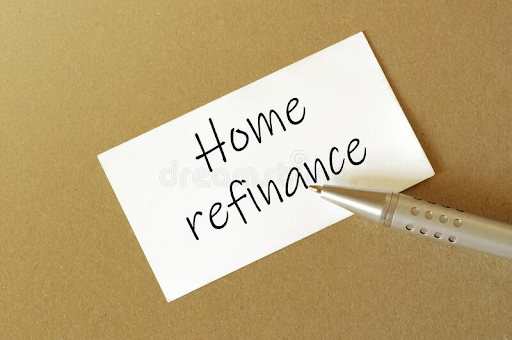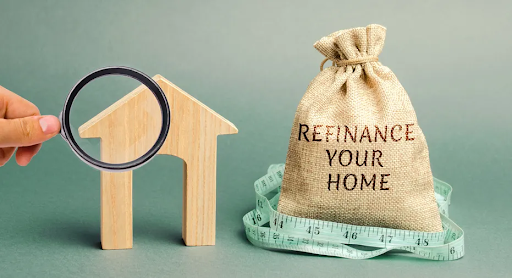
Low home advance interest rates may be one reason why homeowners may decide to refinance their loans. This decision however should only be made depending on your current financial condition.
Low-interest rates should not lure you especially if you have not observed in for a long time. Take your time to observe these rates to ensure they will work in your favor.
Reasons, why many homeowners go for billig refinansiering, are to reduce the length of their loan from maybe 30 years to 20 or 15 years, to cancel home advance insurance, withdraw house value as cash, and convert an ARM to a fixed rate.
Now let’s discuss the things you need to know when refinancing your home advance.
1.Home Equity.
The first thing you should look into before refinancing your mortgage is the value of your home. If its value has decreased compared to when you started the mortgage, known as negative equity, you do not have to refinance it. When the coronavirus pandemic began in 2021, during the second quarter of the same year, consumer confidence was at its highest level. As per the report of Core Logic, this implies that home value had increased significantly.
According to a current report, homeowners in the U.S. with mortgages have benefited from the increase in their equity by 29.3%. Mortgages account for approximately sixty- three percent of all the assets. $2.9 trillion is represented as a collective worth and this translates to $51,500 as an average growth per borrower since 2020’s second quarter. This implies that last year there was a significant decrease in homeowners who were in negative equity.
In 2020’s second quarter, there was 3.3% of homeowners in negative equity. This percentage decreased by 30% in 2021’s second quarter. With this, it shows that still, there is some home equity that did not regain its value. And with conventional lenders, refinancing with low or no equity is impossible with them. Nevertheless, all is not lost because there are government programs that can make this possible.
Another thing you can do is visit a lender individually and explain your situation to them, they can reconsider. If your home equity is 20% or more, you have a chance to qualify for a new advance. If it is less, a solution to your problem has been mentioned above.
2.Credit Score.
Nowadays, lenders have put very serious restrictions on loan qualifications especially if you want a new one and you have not settled the previous one.
You may be surprised when your advance fails to be approved even though you have a good credit score. Banks and other credit institutions require that you have a credit score of 760 and above for you to be eligible for the lowest mortgage interest rate.
With a credit score below 760, you be may be considered and given the debenture but the interest rates charged on the loan will be higher than for one with a good credit score.
3.Length of the Mortgage.
One of the essential reasons why people refinance their advance is to change the length of the mortgage. Some people might want to change a loan from 10 years to 20 years with the sole purpose of reducing the amount they channel monthly to help settle the advance amount. Some individuals on the other hand might want to reduce the length of credit repayment for instance from 20 years to 15. This is however not recommended.
Instead of refinancing the loan to reduce the length of the mortgage, a wise thing to do is to increase the amount of monthly payments and save the money that will otherwise be utilized as fees for refinancing. You can use a home loan calculator to compute the impacts of increasing the monthly payment amounts and replicating your credit repayment length. If you can quite understand how the calculator works, you can contact your lender and have them explain how everything functions.
When increasing your monthly payments to reduce the repayment length of the mortgage, you should not forget about the prepayment penalties since this implies your loan repayment will come earlier than what you had initially discussed with your lender. If the mortgage is charged this penalty, it makes sense to refinance the debenture so that you can settle the credit amount and get over it.
The question most people ask themselves is the number of years it should pass before refinancing on a mortgage. Well, as long as refinancing makes sense, you can do it even after a year or after 30 years depending on your preferences.

Refinancing Fees.
Generally, 1-2% of the advance amount will be charged as refinancing fees by the mortgage broker. It is critical to understand that whether these fees are paid upfront or incorporated in the mortgage, will significantly have an impact on the interest rate charged or the credit.
The rate will be changed from the initial lower rate to a current higher rate. The lender should inform the borrower about these changes in the interest rates so that they can be ready for it. This kind of rate is usually referred to as the annual percentage rate abbreviated as APR.
Since the mortgage fees are essential things to consider when refinancing, it can be a limit to doing it. This occurs in the event that these fees are very high and unreasonable so it will be so costly to refinance. You can know the amount you need to pay as refinancing fees without necessarily waiting for the broker to tell you. This is made possible by the APR calculator which helps in the computation of the annual percentage rate.
It is also important to note that the broker’s fees are not the only fees that need to be settled when refinancing. There are other fees as well that may apply depending on some significant factors. Nevertheless, the fees that you need to pay to refinance your loan should be between 2-6% of the total advance amount. You should not agree to more than 6%. Click here to read more insights.
4.Debt-to-income Ratio.
Debt-to-income ratio is not only a significant factor to consider when applying for a loan. It is also crucial for assessing if you are eligible for new credit before clearing the previous one. The debt-to-income ratio is also used to determine if you are in a position to repay the advance. If you receive a high amount of income it implies that you can settle the loan amount easily and if your income is low compared to the amount of credit you owe the lender, paying back the advance will be a struggle.
For this reason, lenders require that for you be eligible to refinance your advance, you must have a surplus income. Having substantial savings, a stable job and a high income increase your credit limit by a significant amount and you can easily qualify for an advance. A maximum of 28% of the gross monthly salary is what lenders want to keep as a monthly payment amount for housing.
36% or less should be the overall debt-to-income ratio. Dependent on some positive factors, some lenders might want a 43% of DTI ratio. To be eligible, you should consider paying off some minor debts before you decide to refinance.
5.Taxes.
The mortgage interest deduction is what many consumers are used to relying on to lower their state income tax expenses. Your tax deductions might be less in the event that you begin refinancing and paying a lower amount of interest.
For this reason, however, some individuals will not refinance their loans. Notwithstanding, it is likewise conceivable that the interest derivation will be higher for the initial not many stretches of the credit. This is in the event that the interest amount of the regularly scheduled installment is a greater amount than the principal.
Incrementing the total amount of your credit because of rolling closing expenses or moving out money, will likewise influence the amount of interest you will have to pay. That being said, in December 2017, the TCJA, Tax Cuts, and Jobs Acts made a law that may have an impact on your preference of using your mortgage premium deduction. $12, 700 was what was required initially for a couple who are married to fill jointly whereas the new law, requires $25,100. This has made the dependence on mortgage interest derivation less financially appealing to most taxpayers.
Richer property holders who need to renegotiate a huge existing home loan can in any case deduct a premium of up to $1 million in contract obligation, yet the breaking point for a new home advance obligation is presently $750,000 for homes purchased on December 15th, 2017 or sometime later. Given the changes that took place, it is recommended to seek the help of a tax advisor for personal information about the effect of tax refinancing.

Bottom Line.
As we have discussed from the points above, there are enough reasons for you to refinance your home loan. The factors you need to consider are your home equity, credit scores, length of the mortgage, refinancing fees, debt-to-income ratio, and taxes. The interest rates, discount rate, private home advance insurance, your breakeven point, and rates vs. the term are also very essential factors that need to be considered before a home loan refinancing.
And as we have mentioned above, renegotiate your home advance if only it makes sense. If the fees of doing this are higher, then it will make more sense to increase the amount of your monthly payments. Likewise, you should be aware of the prepayment penalty.